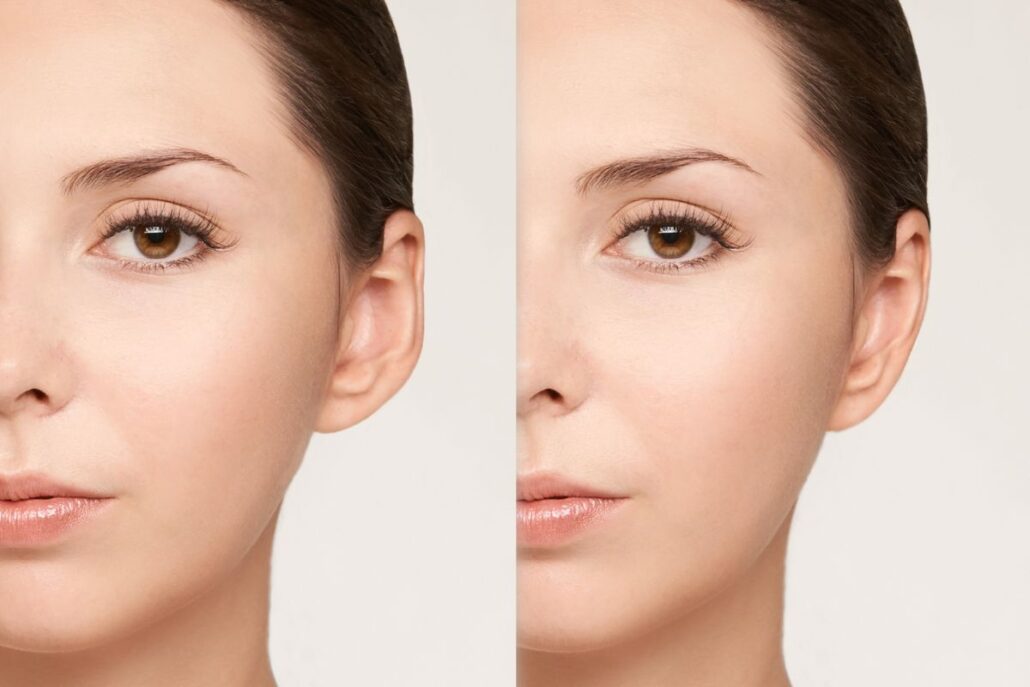What is Otoplasty?
Feeling self-conscious due to ear size or shape is more common than you think. Whether due to a birth defect, injury, or simply dissatisfaction with your ear’s appearance, Otoplasty, a cosmetic ear surgery, could be the answer you’re seeking. In New Jersey, this procedure has provided countless residents with improved self-esteem and enhanced vitality. Ready to explore the amazing benefits of Otoplasty?
Understanding Otoplasty Benefits in New Jersey
Residents of New Jersey opting for otoplasty often enjoy several benefits. This surgery effectively changes the shape of the ear to meet the individual’s surgical goals, thereby enhancing their self-confidence and overall appearance.
Improved Ear Symmetry
When performed expertly, otoplasty improves ear symmetry significantly. Cosmetic surgery refines the ear shape, making it appear visually aligned and balanced.
Enhanced Self-Esteem
The adjustment to adult-sized ears after undergoing otoplasty can have a powerful impact on a person’s self-esteem and body image, fostering a positive outlook toward their appearance.
Restored Ear Function
In some cases, altering the shape of the ear structure through otoplasty can resolve functional issues like hearing difficulty, restoring regular ear function and consequently improving the patient’s quality of life.
Unpacking the Otoplasty Procedure
The otoplasty procedure in New Jersey typically involves the following steps:
- Anesthesia
- Local Anesthesia with Sedation: For adults and older children, otoplasty is often performed under local anesthesia combined with a sedative. This approach allows the patient to remain awake but relaxed and pain-free.
- General Anesthesia: For younger children or in cases where extensive corrections are needed, general anesthesia may be used. This ensures the patient is completely asleep and unaware during the procedure.
The type and duration of anesthesia depend on the complexity of the procedure and patient-specific factors. Dr. Schrader will discuss the best anesthesia option for you during the pre-operative consultation.
- Incision:
Dr. Schrader will make an incision, usually on the back of the ear to minimize visible scarring. If necessary, incisions can also be made within the inner creases of the ears.
- Reshaping the Ear
Through these incisions, Dr. Schrader will:
- Remove excess cartilage and skin.
- Fold and shape the cartilage into a more desirable position.
- Secure the new shape with permanent sutures.
- Closing the Incisions:
The incisions are then closed with sutures. These are typically absorbable, but sometimes non-absorbable sutures are used and will need to be removed at a follow-up appointment.
- Bandaging
Your ears will be bandaged to protect them and support the new shape during initial healing.
Types of Otoplasty Performed in New Jersey
A wide range of otoplasty, or ear surgery, procedures are available to tailor to individual patients’ needs. Traditional otoplasty is commonly employed to correct protruding ears, creating a more balanced appearance. Earlobe reduction is another option, particularly beneficial for those with oversized or stretched earlobes caused by heavy earrings or aging.
New Jersey’s skilled surgeons adapt their approach depending on the unique requirements and desired results of each patient.
Traditional Otoplasty Surgery
Traditional otoplasty, more commonly referred to as ear pinning surgery, involves complex yet fairly safe surgical procedures. A skilled surgeon performs incisions behind the ear to expose cartilage, allowing for the reshaping, reduction, or augmentation necessary for improved symmetry and aesthetic appeal.
Earlobe Reduction
In earlobe reduction otoplasty, we create a natural fold in the earlobe to subtly decrease its size. This involves a light dressing covered over the incision, ensuring the area is clean and protected post-procedure while promoting healing. The surgery results in less prominent earlobes that align with the individual’s facial features, enhancing their appearance.
Defining the Ideal Candidate for Ear Surgery
Ideal candidates for otoplasty are adults or children who can limit normal activity for recovery and have realistic expectations about the outcomes. The ideal otoplasty candidate understands that while the cosmetic procedure can enhance appearance and boost self-esteem significantly, it should not be seen as a solution to deeper body-image issues. They must be ready to follow all post-operative instructions and take the necessary time off for recovery.
Initial Consultation for Otoplasty in New Jersey
The initial consultation for Otoplasty in New Jersey is a vital step in your journey to enhanced ear symmetry. This one-on-one meeting aims to assess your health, see if you are dealing with any type of medical condition, evaluate your medical history, understand your aesthetic goals, and evaluate if you are a good candidate for otoplasty. Our Board-certified surgeons here in New Jersey prioritize your safety and satisfaction, ensuring that your concerns get addressed, and you are well-informed about the procedure.
Otoplasty Cost in New Jersey
The otoplasty cost in New Jersey varies significantly due to several factors. This largely includes the complexity of the procedure, surgical fees, and pre/post-operative care. Furthermore, the surgeon’s experience and the location of the clinic contribute to the cost differences. Our clinics in Princeton, Robbinsville, and Voorhees offer otoplasty options. Additionally, individual patient needs and cosmetic goals influence the final cost, which can range between $3,000 to $7,000 depending on all these parameters. It’s crucial for patients to have a detailed consultation with the surgeon to understand the cost breakdown and ensure the procedure meets their budgeting needs.
Prepping for Your Otoplasty
Before undergoing otoplasty, it is crucial to prepare adequately to ensure a smooth procedure and recovery. A complete medical evaluation may be necessary to ensure you are a good candidate for surgery. This could include lab tests and a review of your current medications.
Dr. Schrader will provide specific instructions to follow in the weeks leading up to your surgery. This may include:
- Avoiding certain medications and supplements that can increase bleeding, such as aspirin and anti-inflammatory drugs.
- Stopping smoking, as it can impede healing.
- Maintaining a healthy diet and stay hydrated to facilitate smooth otoplasty recovery
- Arranging for someone to drive you home and assist you for at least the first 24 hours post-surgery.

Otoplasty Recovery and Aftercare in NJ
The recovery process after otoplasty is typically brief. One week after surgery, the bandages are usually removed, revealing corrected ear structures. The skin may be tender, but patients can return to normal activity within one week post-operation, minimizing downtime.
Proper post-operative care is essential for a smooth recovery and optimal results. Here are the steps to follow:
- Immediate Recovery: You will spend some time in a recovery area where you will be monitored. Once the anesthesia wears off, you can go home. Ensure you have someone to drive you.
- Pain Management: It’s normal to experience some discomfort, swelling, and bruising. Dr. Schrader will prescribe pain medication to help manage this. Keep your head elevated and avoid sleeping on your sides to minimize swelling.
- Wound Care: Follow Dr. Schrader’s instructions on how to care for your surgical site. This includes keeping the area clean and dry and avoiding any pressure on your ears.
- Wearing the Bandage: It is crucial to keep the bandage on as instructed. Typically, the bandage is worn for a few days, followed by a headband that covers the ears, especially at night, to protect them from accidental trauma.
- Follow-Up Appointments: Attend all scheduled follow-up appointments with Dr. Schrader. These are important to monitor your healing process and to remove any non-absorbable sutures if necessary.
- Activity Restrictions: Avoid strenuous activities and exercises that may impact your ears for several weeks. Dr. Schrader will provide specific guidelines on when you can resume normal activities.
- Long-Term Care: As your ears heal, maintain good hygiene and protect your ears from extreme temperatures and physical impact. Dr. Schrader will provide long-term care tips during your follow-up visits.
By six weeks, most patients have fully healed and can resume all everyday activities, including sports and exercise. Any residual swelling will continue to diminish over the next few months.
Potential Risks of Otoplasty
While otoplasty is generally safe, it’s important to be aware of potential risks and complications. Dr. Schrader will discuss these risks with you in detail before the surgery.
Common Risks
- Infection: Minimized by following post-operative care instructions.
- Bleeding: Some bleeding is normal; excessive bleeding requires medical attention.
- Scarring: Incisions are placed in natural folds to minimize visible scarring, which usually fades over time.
Less Common Risks
- Asymmetry: Perfect symmetry may not always be achievable, and further adjustments might be needed.
- Changes in Sensation: Temporary numbness or changes in skin sensation, typically resolving over time.
- Poor Wound Healing: Rarely, the incision site may not heal properly, leading to noticeable scars or developing a cauliflower ear after the surgery. Additional corrective procedures can be necessary.
How to minimize these risks?
Ensure your surgery is performed by a board-certified plastic surgeon like Dr. Schrader. Adhere to all pre-operative and post-operative instructions to promote proper healing and reduce the risk of complications.
Why Choose a NJ Board-certified Plastic Surgeon for Otoplasty?
- Graduated with honors from Harvard College and earned her medical degree from Columbia University.
- She completed a residency in General Surgery and a fellowship in Plastic Surgery at NewYork-Presbyterian Hospital/Weill Cornell Medical Center.
- Board-certified by the American Board of Plastic Surgery and a member of ASPS and ASAPS.
- She specializes in otoplasty and facial plastic surgery, delivering exceptional, natural-looking results.
- Consistently recognized as a top plastic surgeon in New Jersey for her patient-centered care and surgical excellence.
Click here to request your consultation with Dr. Schrader.

